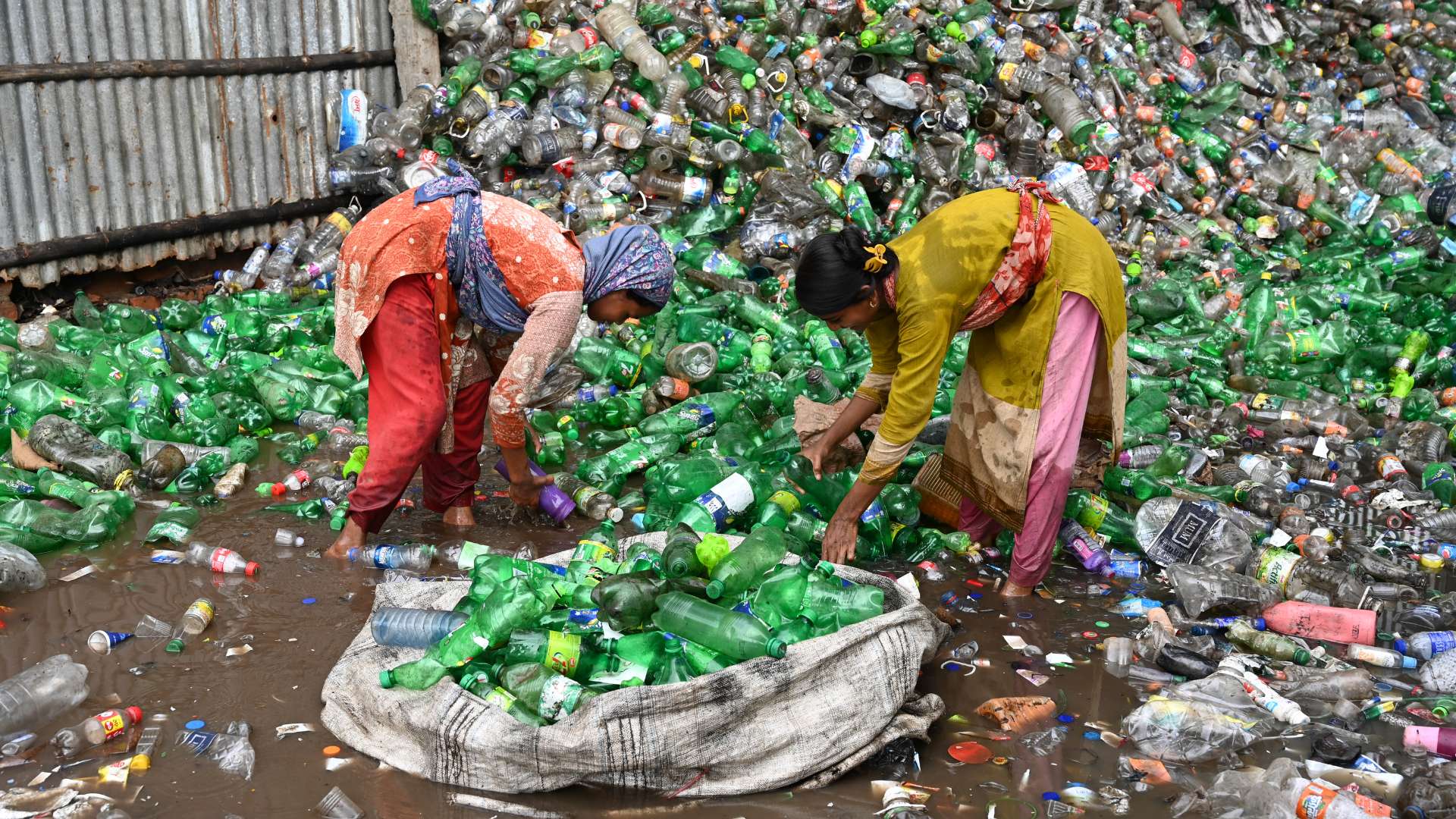 Over 100 countries rejected the draft text for the global plastics treaty, labeling it “unambitious” and “inadequate”. This rejection was led by a coalition of “high ambition countries” including many African and Pacific nations, EU and the UK. The reason? The treaty did not address the root cause of plastic pollution, which is plastic production!
Over 100 countries rejected the draft text for the global plastics treaty, labeling it “unambitious” and “inadequate”. This rejection was led by a coalition of “high ambition countries” including many African and Pacific nations, EU and the UK. The reason? The treaty did not address the root cause of plastic pollution, which is plastic production!
Why focus on production and not just plastic waste?
Plastic production reduction is at the heart of the Global Plastics Treaty debate. Global plastic production has doubled in the last 20 years and plastic waste is projected to triple by 2060 if unchecked. Even the best recycling infrastructure globally only manages about 9% of plastics and recycled products have serious issues such as high concentration of toxicity, high leachability and release of microplastics among many others. Without cutting production, the flow of waste will always outpace cleanup efforts, making downstream solutions insufficient. Over 99% of plastics are made from fossil fuels and petro and petrochemical states such as the US, Iran, Iraq, Syria, Russia, China and India etc are vehemently opposing any measures to curb plastic production. While plastic is polluting the environment, injecting toxins into our bodies and aggravating climate change, the only counter narrative given by these states is, “It’s the economy, stupid!” highlighting that these states are keeping profits at a higher pedestal than the people and the planet.
The fallacy of the “broom revolution”-
When Prime Minister Modi launched the Swachh Bharat Abhiyan in 2014, he famously picked up a broom outside Valmiki Basti in Delhi — visually signaling that all it takes to solve the waste and plastic crises is a “broom”. This led to a barrage of politicians and celebrities holding brooms removing visible dirt while ignoring the structural systems that create and mismanage waste. The “broomwashing” made cleanliness an individual moral duty, instead of holding municipalities, corporations, and plastic producers accountable. The solution to tackle plastic pollution “post-consumption” was followed up by a “ban” on “single use plastics”. The ban covering about 19 plastic items such as plastic cutlery, straws, plates, cups, glasses, and thermocol for decoration etc was announced in 2022, on paper. Even this abysmally poor “quarter hearted” ban targeted just 2-3% of the total plastic waste generated in the country and plastic sachets for everything else — ketchup, shampoo, creams, detergents, biscuits, chips, chocolates — continued unabated. The “broom revolution” was never about fixing the plastic waste problem or our defunct waste management systems – it was about sweeping away responsibility from the state and corporations, and dumping it onto citizens with a symbol of moral purity!
The Refuse and Redesign Revolution (3R)-
A post-broom approach could start by reframing the problem: from individual cleanliness to circular systems. This should begin with “Refusing” unabated plastic production starting with capping the production of single use plastics. The next step would be a “Redesign” revolution including reuse and refill systems. A good example of a just transition in the post consumption of plastics is the “zero waste cities (ZWC) model” that integrates waste workers through co-operatives, contracts and social protections. This model also strengthens and enforces the Extended Producer Responsibility (EPR) so that producers pay the real price for end-of-life costs. The ZWC models focus on repairing and reusing products, creating demand for skilled repair technicians and studies have shown that they create about 200 times more jobs than waste incineration models!
The United Nation’s theme for 2025 is indeed “Beat Plastic Pollution” to address the pervasive problem of plastic pollution. However, countries have failed to unite to fight the plastic problem and a majority of the countries in the world are betting that beating plastic pollution is impossible without beating plastic production!
Centre for Financial Accountability is now on Telegram. Click here to join our Telegram channel and stay tuned to the latest updates and insights on the economy and finance.

